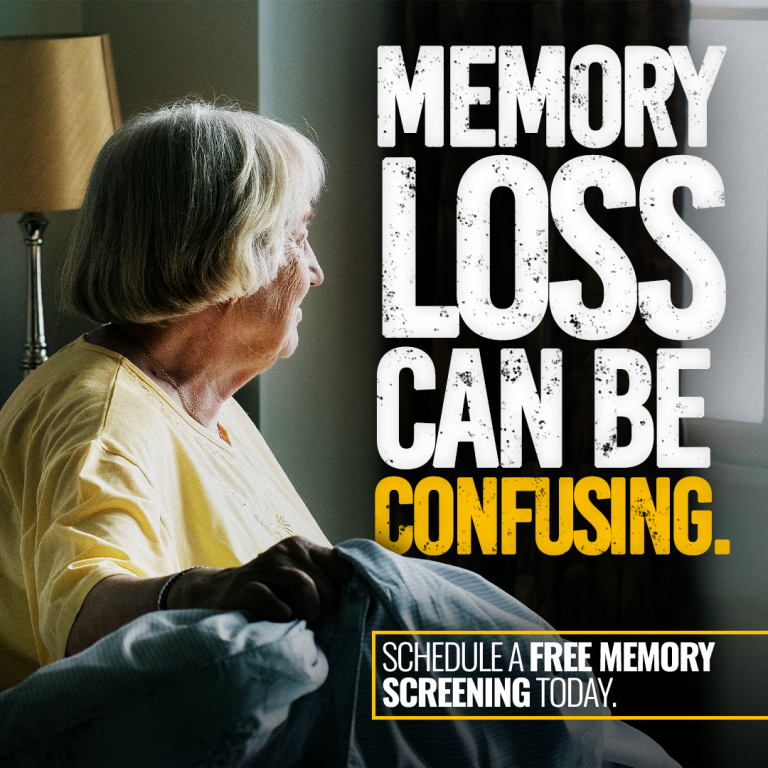Occasional memory loss is common as we age. However, memory issues related to dementia can interfere with daily life and be tough for you or your loved one to deal with. How to approach memory loss concerns may be confusing if you don’t know what to look for. Determining whether you should seek help comes with learning to assess the situation.
Know the Signs

Starting the journey to find out if your memory issues need to be investigated further can be a daunting process. However, the important thing to remember is early intervention is key in the treatment of Alzheimer’s and other related dementias.
The main thing to remember is normal, age-related memory loss isn’t going to disrupt your daily life. Memory issues can also be the result of other medical problems or medication side-effects, so it is essential to recognize when there should be a concern so it can be addressed immediately.
The Alzheimer’s Association lists the following as 10 Early Signs and Symptoms of Alzheimer’s:
- Memory loss that disrupts daily life
- Challenges in planning or solving problems
- Difficulty completing familiar tasks
- Confusion with time or place
- Trouble understanding visual images and spatial relationships
- New problems with words in speaking or writing
- Misplacing things and losing the ability to retrace steps
- Decreased or poor judgment
- Withdrawal from work or social activities
- Changes in mood and personality
There are also online tool guides for yourself and a loved one if you notice memory changes to answer basic questions, and how you proceed from there.
When to Get Help
It may be time to see a doctor if you recognize some of the early signs of Alzheimer’s as your own, or in a loved one’s behavior. It is estimated that a skilled physician can diagnose Alzheimer’s with 90% accuracy. Many people start with their primary care physician. They may oversee the diagnostic process themselves, or refer out to a specialist, such as a neurologist, psychiatrist, psychologist, or a geriatrician.
Your provider will evaluate your overall health, medical conditions, any medications you are taking. Be sure to list any memory issues you are experiencing and any mood or behavior changes. You will then answer a series of questions, so be sure to answer as honestly to the best of your ability. From there, your doctor will decide what direction to take, if any.

If you are concerned about memory issues, research studies may be an option. Brain Matters Research offers a FREE memory screen as a tool to determine if additional steps are needed to evaluate your memory concerns further. Also, BMR is looking for participants for future neurological disorder studies such as Parkinson’s, Alzheimer’s, or Multiple Sclerosis looking into potential new options.
To learn more about how you can get involved, call (561) 374-8461, or click here.
Reference:
https://www.alz.org/alzheimers-dementia/memory-loss-concerns




